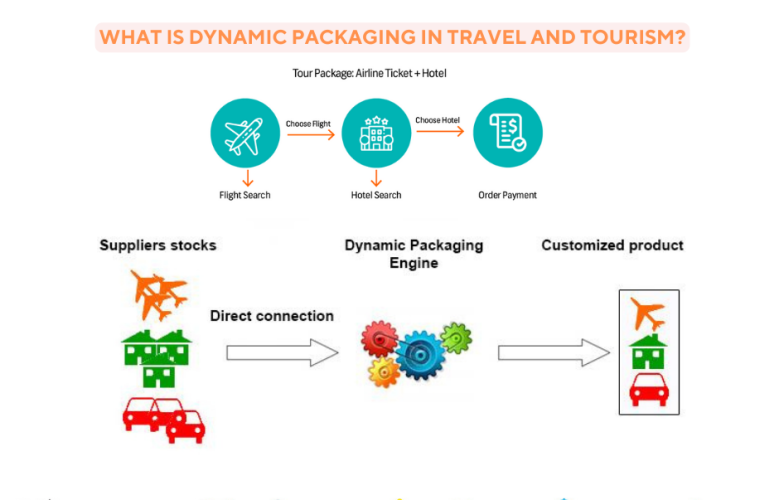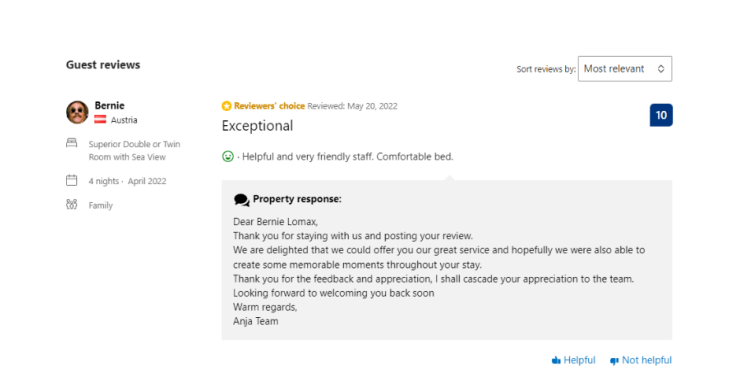What is dynamic packaging in travel and tourism?
In truth, traditional tour operator package holidays, usually sold offline and consisting of set flights and accommodation, remain popular, particularly in the UK, Germany, and China. Research presented by Skift shows fixed package holidays – normally a two-week beach vacation – taken by Germans and Britons in 2018 accounted for 40% and 43% of the total vacation market respectively (see chart 1).
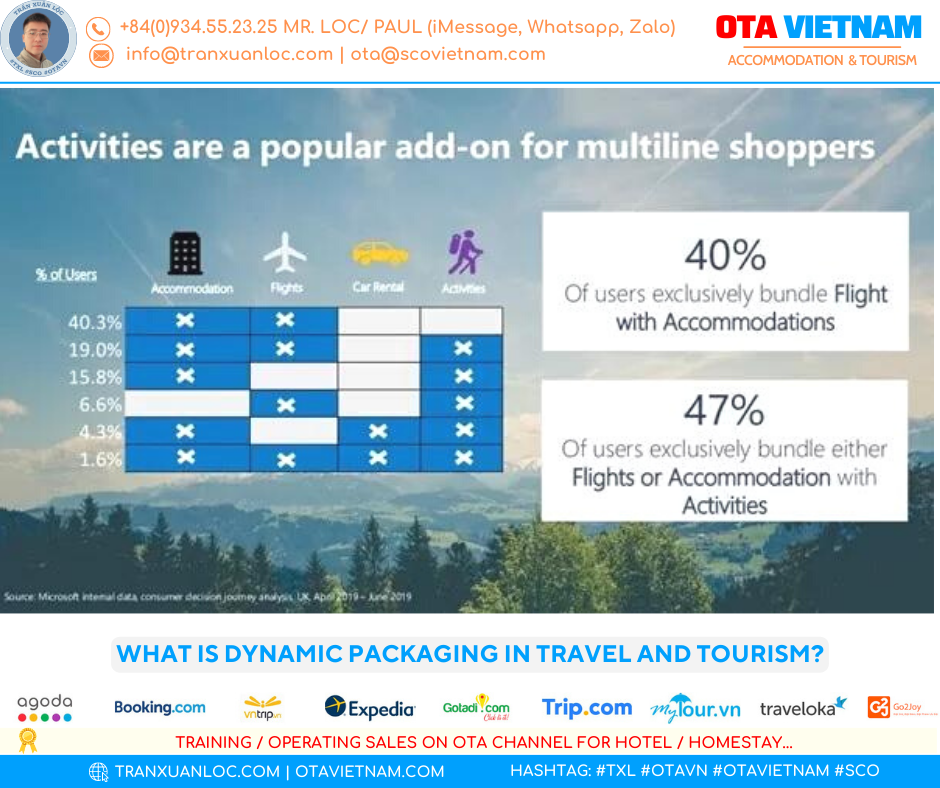
Eng Otavn Otavietnam 940x788px What I Dynamic Packaging In Travel And Tourism
When Thomas Cook collapsed in September 2019, headlines suggested that the demise of one of the oldest travel companies in the world was the final nail in the coffin for the traditional package holiday.
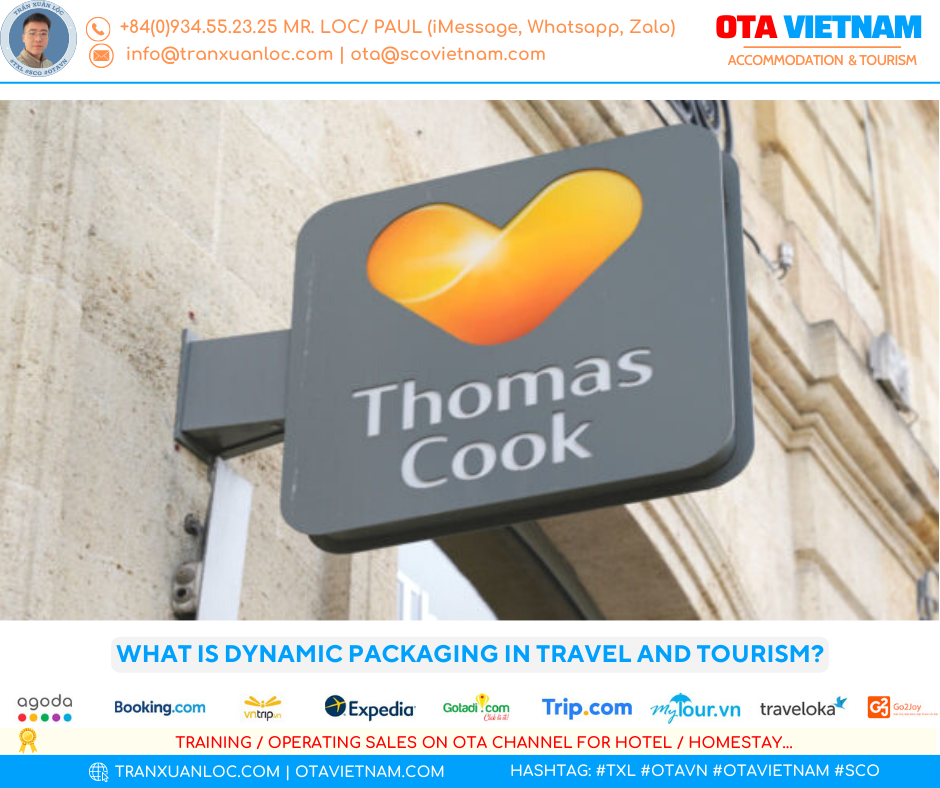
Eng Otavn Otavietnam 940x788px What I Dynamic Packaging In Travel And Tourism2
What is dynamic packaging in travel and tourism?
In the travel and tourism sector, dynamic packaging refers to a trip or vacation with in-built flexibility and ‘pick and mix’ functions, that customers can book via an OTA or online tour operator.
Dynamic packaging contrasts with the traditional travel business model in which the tour operator buys blocks of flights and overnight stays from wholesalers and sells them on to customers. This pre-internet model left the tour operator exposed to the cost of any unsold vacations, and was a factor in the collapse of Thomas Cook.
In the 21st century, OTAs and online tour operators have made dynamic packages a core focus of their businesses. Customers making purchases on sites such as Expedia and Booking.com are sourcing flights, accommodation and car rental in real-time. The dictionary definition of ‘dynamic’ is a system or process characterized by constant change.
The term ‘dynamic’ applies to the vacation package because it changes depending on the customer, who may wish to add theatre tickets, airport parking, activities or restaurant bookings.
Crucially, dynamic also applies to prices. Dynamic pricing i.e. flexible pricing based on market demand, is particularly suited to perishable products such as hotel stays, airline seats and concert tickets. Still, in order to apply dynamic pricing, we need to understand the factors affecting demand forecasting.
This allows packages to be dynamically priced for each individual component but given a total opaque price for the end-user. To deliver true dynamic packaging, tour operators and OTAs need to partner with a specialist software provider such as peakwork or traveltek.
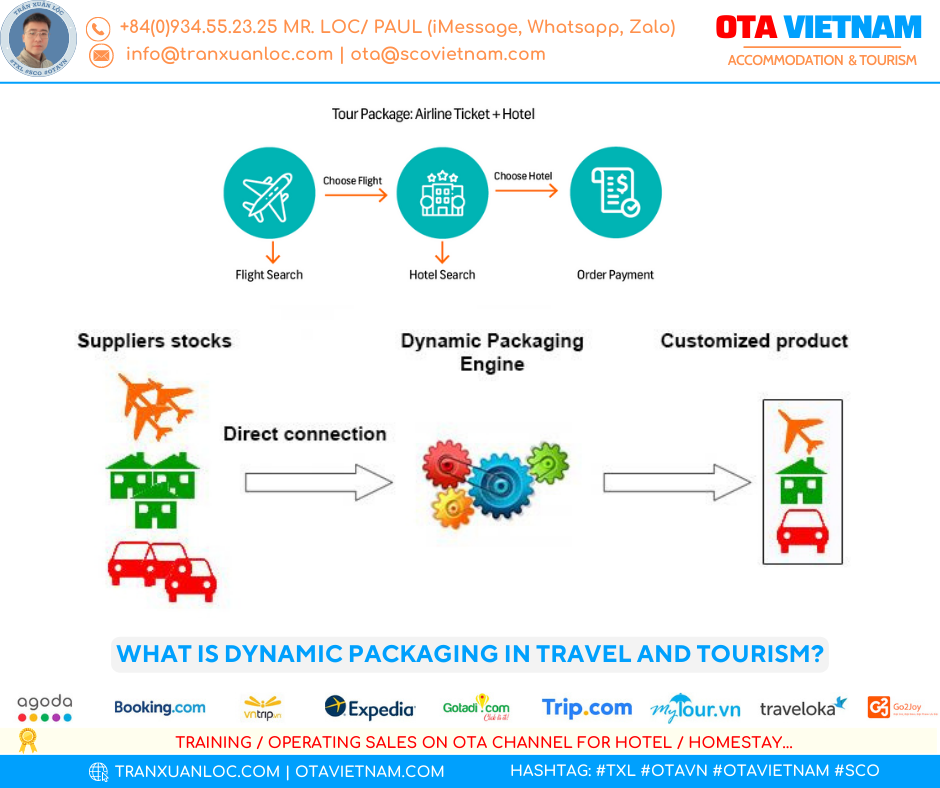
Eng Otavn Otavietnam 940x788px What I Dynamic Packaging In Travel And Tourism3
Dynamic packages that include activities and experiences
Dynamic packaging has helped to increase the sales of activities and experiences too. According to Unlocking cross-selling in travel, a 2019 Microsoft report, the most popular activities by number of searches are as follows (see chart 4).
Chart 4: The most popular activities by number of searches
| 1 | Skiing |
| 2 | Surfing |
| 3 | Safari |
| 4 | Wellness |
| 5 | Snorkeling |
| 6 | Hiking |
| 7 | Rafting |
| 8 | Scuba diving |
| 9 | Parachuting |
| 10 | Skydiving |
Activities are a popular add-on for consumers who are creating their own dynamic packages. Microsoft research found that 40% of its users exclusively bundle flights with accommodation, while 47% added an activity when either purchasing a flight or accommodation (see chart 5).
Outbound Package Holiday Market Share UK & Germany (Chart 1)
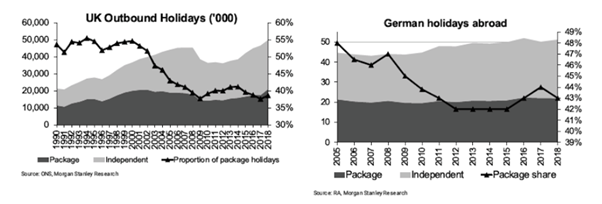
So the evidence is that while the traditional package holiday is by no means dead, alternative and more flexible ways to book vacations are dominant. Travelers are seeking more individual experiences and, for a number of years now, there has been growth in OTAs offering consumers the ability to create dynamic travel packages and improving the look to book ratio.
Dynamic Vacation Package Sales (Chart 2)
In the US, the world’s largest tourism market, dynamic vacation package sales were worth $35b in 2017, according to a peakwork research paper (see chart 2).
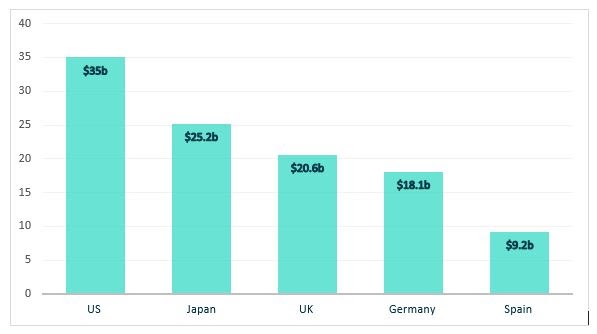
A forecast of dynamic package sales made prior to the global pandemic shows significant growth curves, particularly for the Indian and US markets (chart 2)
Growth of dynamic package sales (Chart 3)
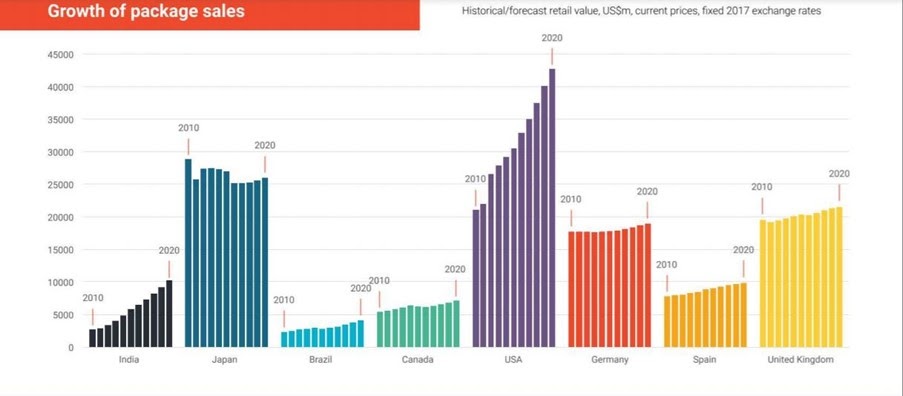
Examples of dynamic packaging in travel and tourism
The most common entry point for customers purchasing dynamic packaged trips or vacations is accommodation, followed by flights, according to research into the UK market by Microsoft (see chart 3).
Chart 3:
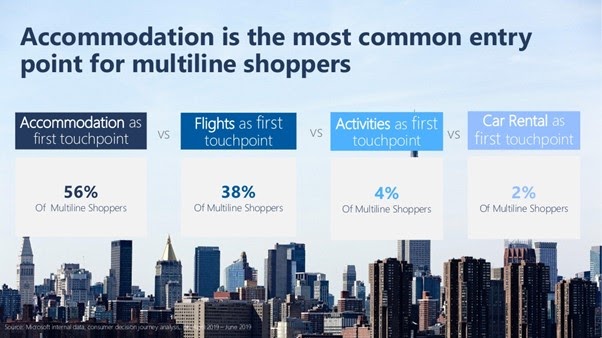
There has been an increase in the types of businesses and brands that offer dynamic packaged vacations. These now include airlines, hotel groups, rail operators, metasearch engines and potentially more.
Almost every major airline is now in the business of selling vacations too. Airlines are taking a share of the dynamic package market and extending their brand presence. Some outsource their vacation websites to travel companies while others do not.
Ryanair Holidays, for instance, is administered by the OTA Logitravel. In contrast, Emirates Holidays is run in-house as the tour operating arm of the Dubai-based Emirates Airline.
Major hotel brands have also created their own vacation businesses to give their brands greater visibility and capture their share of the vacation market.
Vacations by Marriott is a service powered by Expedia. The website clearly states that the customer is making a booking with Expedia and not Marriott and that the majority of the hotels within the packages are not Marriott hotels.
Train operators are another category in the dynamic package market. In Europe, high-speed rail travel is taking market share from airlines, especially on shorter journeys such as those between London, Paris, Brussels and Amsterdam.
Eurostar Holidays, a wholly owned subsidiary of Eurostar International, allows customers to book travel, accommodation, car rental, luggage services and museum tickets all in one transaction.
Metasearch giant Google has flight, hotel and trip search tools that allow travelers to apply various filters of their choice, such as only to show offers with free cancellations policies.
Technological advances could further ‘democratize’ the availability of travel information and inventory by making it easier and cheaper to access. The use of big data in the travel industry could be a big asset for this.
In the near future, it is likely that any business that chooses to – e.g. travel guidebooks, wine producers or publishers – could include a travel booking function on their website thanks to an API (application programming interface).
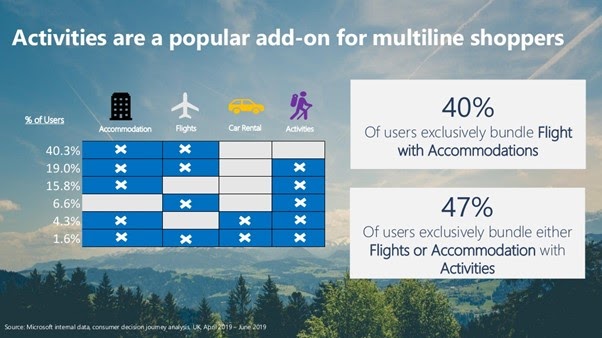
The benefits of dynamic packaging
For OTAs and online tour operators, the overriding benefit of dynamic packages is the ability to achieve consistently high margins. Dynamic packages usually have a single opaque price for the consumer meaning that the tour operator’s cost of the individual components is not known to the end-user.
Tour operators tend to obtain special package-only rates from their suppliers which are significantly lower than if these components were sold as standalone items. Pricing in real-time allows the tour operator to sell attractive packages to tourists while keeping control over their own margins. This is the answer to the question of how to increase sales in travel business.
As noted in a research paper by Emmanouil Stiakakis tourism is an information-intensive industry with a relatively long value chain. The chain of distribution usually consists of four or five stages.
Because the chain of distribution is dynamic (availability and price are constantly changing), there are further opportunities for tour operators to maximize their profits.
For the principals in the distribution chain – i.e. the airlines and the hotels – dynamic packages have benefits too.
Average daily hotel rates are, on average, 30% higher for package stays compared to standalone stays, according to research by Expedia.
Tourists who book their hotel stay within a package tend to stay longer, book earlier and are less likely to cancel. This helps hoteliers reduce last-minute discounting. The same is true for airlines.
Dynamic packaging also enables hotels and airlines to offload distressed inventory, as the true price is hidden from the customer.
Dynamic packaging has created more complexity, but also greater flexibility and many positive benefits for all players at every stage of the travel and tourism distribution chain.
